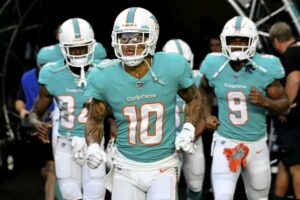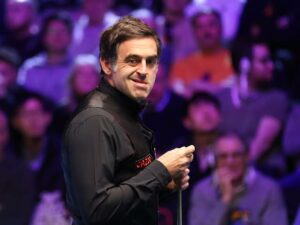PLAY-OFF FINAL FOR LEAGUE 2: May 28, 1997

A great deal has already been said about Paul Holmes’s character and popularity as a teammate by those who knew him well. Along with his poise as a fullback and his grace on the pitch, he was highly regarded by the club’s supporters for belonging to a generation of players that made a lasting impression on the team. Paul Holmes is remembered by fans of the squad during the 1988–1992 era as one of those important players who, along with players like Mark Loram, Matt Elliott, Sean Joyce, and Dean Edwards, helped close the distance between Cyril Knowles and the 1991 promotion team.
Paul Holmes was the son of Albert Holmes, who primarily worked with Chesterfield and had a very respectable career. Both were reliable fullbacks who played sound positions, and like his father, Paul was well-liked by his peers as a teammate.
Dave Blakely, Albert’s old teammate, was scouting for Doncaster Rovers manager Billy Bremner at the time. This led to Paul participating on a preseason tour of Scotland as a 16-year-old on trial, which convinced Bremner to sign the young player. Future Sheffield United and Leeds player Brian Deane was one of his reserve team mates at Doncaster.
Paul was let to depart Rovers after just over 50 first team games because Dave Mackay, the manager at the time, let go of several of the players who had Donny demoted from the third division. Although it was widely believed that Doncaster erred in releasing Holmes, Torquay stood to gain from the move, and at £6000, he turned out to be a great addition.
Thanks to Dave W*bb, Torquay United went from being a mid-table backwater to a laughingstock throughout the 1980s. They would have been the first team to be demoted from the current EFL to what we thought (at the time) would be non-league obscurity if it weren’t for Bryn. That’s why we had something to be proud of when Cyril Knowles turned the team that Bryn had salvaged into the meanest, roughest team in Division Four. Thus, it was concerning when Cyril disbanded that team at the conclusion of the 87/88 campaign, sending players like Alan Pearce, Dave Caldwell, Paul Dobson, Lee Sharpe, John Impey, and Kenny Allen packing.
Cyril acknowledged that his initial objectives were family men turned off by the cost of homes in Torbay, but he had planned to replace those who went with similar players with similar experience. He was forced to change his approach and sign new players in its place. He said that not many people could run as fast as Paul Holmes, but this gang could. Along with Sean Joyce, he was one of those young players signed from Doncaster Rovers, where they had both played a significant amount of first-team games before moving to Plainmoor. The fact that the two had moved to Torquay from their hometown of Yorkshire struck me as something of a coup. As it happened, Sean Joyce and Paul Holmes were close friends. Joyce, who didn’t have a club at the time, went down to share digs with Holmes, and the two of them convinced Cyril Knowles to give Joyce a go, which clearly worked out well. The two weren’t the only newcomers, as Jimmy Smith, John Morrison, Darren Leyden, Daral Pugh, Dean Edwards, Kenny Veysey, and Richard Thompson all joined after being promoted from the YTS squad.
Following the departure of John Impey, Jim McNichol moved to center-back, making Paul Holmes the first-choice right-back right away. Holmes adjusted to his new position with remarkable ease, adding an offensive poise and vigour that belied his inexperience, and he soon became a Pop Side favourite.
As the season progressed, the team signed more youthful players, including Paul Smith, Ian Weston, Paul Elliott, and Paul Hirons, putting aside their mixed league form in order to compete for the FA Cup and, more notably, the Sherpa Van Trophy. My recollection is blurry now, but I’m thinking Paul Holmes was hurt because he didn’t play in the championship game or in many of the games that season’s closing games. But two years later, he would make the right conversion in the historic penalty shootout against Blackpool at Wembley, which saw Torquay win their first promotion in 25 years.
It was unfortunate that Torquay failed miserably in its bid to compete in the third division, where teams like Birmingham City, Stoke City, and West Bromwich Albion were at the same level as us. Following John Impey’s dismissal, the team was left without a manager for an extended period of time, which caused them to stagnate and waste their hard-earned promotion. The team managed to survive for just one season before pathetically conceding relegation. For those who were sold for very little money, such as Matt Elliott and Paul Holmes, it also signalled the end of their stay at Plainmoor.
Holmes only cost £40,000 when he moved to Birmingham, but manager Terry Cooper didn’t make the most of him, choosing instead to utilise Scott Hiley, who had been brought in from Exeter. He played Holmes at left-back, so it’s likely that Paul Holmes believed any future move may be back down the pyramid rather than up during a difficult time for the team and only being selected for a few games, but then came a move that surprised even Paul.
After checking into a nearby hotel to kill time, Howard Kendall went to watch Birmingham and saw Paul Holmes. Paul was invited to play in an Everton reserve game and was then offered a deal, despite initially believing the call from the Everton manager to be some sort of wind-up.
Paul Holmes stated: “I didn’t require two questions.” I would have signed for any pay they gave. It was truly wonderful to be a part of such a club.
As supporters of Torquay, I believe we were all thrilled to see one of our former players make this unanticipated move to the top level. Despite being a native of Yorkshire, Paul Holmes seemed like one of us, and it was incredible to watch him perform at that calibre.
It wasn’t a coincidence either; after participating in a good number of games, he carried on with his excellent play when he joined West Bromwich Albion. He was the most expensive defender WBA had ever signed at the time.
I remember hearing whispers in late 1999 that Paul Holmes was returning, but given his post-Torquay career, it seemed unlikely. Nevertheless, I seem to recall how great it felt to have Holmes back playing for Torquay during an FA Cup match away to Forest Green Rovers in November of that year, even if in actuality, he was too excellent for us.
Throughout his two spells at Torquay, Paul Holmes appeared to play a significant role in uniting what felt like a number of distinct eras: the Cyril Knowles era, when he was surrounded by players like Jim McNichol and Matt Elliott, and the promotion-winning season, which featured Wes Saunders, Tommy Tynan, and Chris Curran. During his second stint, he returned to play with players such as Tony Bedeau, Eifion Williams, and Kevin Hill. He ended his career just as Leroy was completing the roster that Roy McFarland had assembled, which included players like Steve Woods, David Graham, Jason Fowler, and Alex Russell.
Prior to facing Howard Kendall in the Premier League, he was coached by Cyril Knowles, Dave Smith, John Impey, Wes Saunders, and Ivan Golac at Torquay. He returned to a Torquay under the management of Wes Saunders, where he stayed on as Colin Lee, Roy McFarland, and Leroy Rosenior guided the team. Just three years after half of the main Grandstand had burned down due to fire, Lew Pope was the chairman and Plainmoor was a mess with the ancient Pop Side, the disintegrating Mini Stand, and the uncovered three steps worth of an away end.
When he resigned in 1988, Plainmoor was hardly the same place, and his final call to action signalled the end of an exceptional career for an exceptional man. Supporters have shown their love and thanks for him in record measure after his brutally early death. Hopefully, this will bring some solace to his family and those closest to him, as they know how warmly he will be remembered. The fact that such a large club as Everton remembered him so movingly shows how much people loved Paul Holmes. Few people resembled him.
GET MORE NEWS HERE


